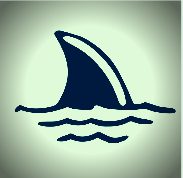LONDON (UK)- The Manta Trust, Project AWARE®, and WWF have released the Responsible Shark and Ray Tourism: A Guide to Best Practice, the world’s first-ever guidelines for shark and ray tourism operators.
The Guide aims to provide practical, science-based guidance to help tourism operators, NGOs and local communities develop and maintain well managed tourism operations that help conserve shark and ray species, raise awareness for their protection, and benefit local communities.
25 procent shark and ray species threatened
Unsustainable exploitation of sharks and rays – mainly driven by overfishing – is widespread with one in four shark and ray species now threatened with an increased risk of extinction.
Yet across the globe, shark and ray tourism is increasing in popularity. Currently, around 400 well-established tourism operations focus on interacting with species of sharks and rays, and it’s estimated that this number could more than double over the next twenty years, generating over 780 million USD in expenditures around the world.
‘Ecotourism as conservation strategy’
Dr Andy Cornish, WWF says, “Shark and ray focused ecotourism has great potential as a conservation strategy. If properly designed and managed, it can provide alternative direct and indirect economic benefits to local communities and economies. Yet sadly there’s limited practical guidance out there.”
Industry, researchers, authorities and the nonprofit community largely agree that best-practice guidance is urgently needed to ensure that tourism sites are established and operated in a manner that benefits sharks and rays, and local communities, while also inspiring awe, respect and a greater appreciation of the need to conserve these animals.
Best practices
Isabel Ender, Manta Trust, adds, “Lack of best practice guidance can often leave operators confused about how to assess the impact and improve the sustainability of their operation. We sought advice from scientists and the industry to help bridge that gap and deliver a best practice guide – the first of its kind in the world.”
To support operators seeking to commit to best practice, a full suite of free, downloadable tools is available on all of the organizations’ websites.
Ania Budziak, Project AWARE:“Operators now have access to the latest science based guidance and practical, hands on tools like performance scorecards and checklists. We’re looking forward to helping local communities lead the transformation to a responsible shark and ray focused tourism around the world.”
For further information or to download any of the tools visit The Manta Trust, Project AWARE and WWF websites.

